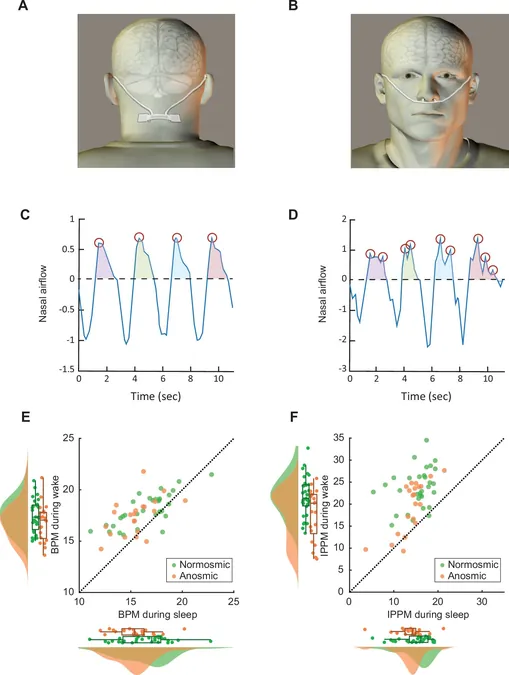
Shocking Discovery: Anosmia Linked to Distinct Breathing Patterns Revealed by Israeli Researchers
2024-10-23
Author: Wei Ling
Groundbreaking Study on Anosmia and Breathing Patterns
In a groundbreaking study conducted by a team of neuroscientists at The Azrieli National Institute for Human Brain Imaging and Research in Israel, it has been revealed that individuals suffering from anosmia, the inability to smell, exhibit unique breathing patterns compared to those with a normal sense of smell. This research, published in the esteemed journal Nature Communications, adds a new dimension to our understanding of this condition, particularly in the wake of widespread COVID-19 infections.
Prevalence and Impact of Anosmia
Anosmia has become alarmingly prevalent as a symptom of COVID-19, leading researchers to delve deeper into its effects. The condition, which can stem from various factors ranging from neurological disorders to emotional disturbances, significantly diminishes the quality of life for those affected. Beyond just the loss of scent, the researchers pinpointed a potential correlation between anosmia and altered respiratory behaviors.
Experimental Findings on Breathing Patterns
Addressing claims from individuals who reported “breathing funny” after losing their sense of smell following COVID-19, the research team conducted a detailed experiment involving 52 volunteers. Among these participants, 21 were identified as suffering from anosmia. By monitoring the volunteers’ breathing patterns over the course of 24 hours using advanced tracking devices, the scientists uncovered striking differences.
Breathing Patterns and Their Significance
While individuals with a typical sense of smell display small inhalation peaks, this characteristic was absent in those with anosmia. This disparity prompted researchers to further analyze the significance of these findings. Remarkably, the team was able to identify participants with anosmia with an impressive accuracy of 83%, solely by assessing their distinct breathing patterns.
Implications for Mental Health and Future Research
The implications of this research are far-reaching. The team suggests that these altered breathing patterns may indicate underlying neurological changes and could potentially increase the risk of developing related mental health issues, such as depression. Given the growing body of evidence linking anosmia to various health concerns, future studies are crucial in exploring the long-term impacts of altered respiratory patterns on overall well-being.
Conclusion and Future Directions
In a time when understanding the consequences of COVID-19 remains vital, this research shines a light on the lesser-known effects of anosmia and emphasizes the need for continued investigation into sensory and cognitive health. Will this discovery lead to new diagnostic techniques or therapeutic approaches for anosmia? Only time will tell. Stay tuned for more updates as this story develops!

 Brasil (PT)
Brasil (PT)
 Canada (EN)
Canada (EN)
 Chile (ES)
Chile (ES)
 España (ES)
España (ES)
 France (FR)
France (FR)
 Hong Kong (EN)
Hong Kong (EN)
 Italia (IT)
Italia (IT)
 日本 (JA)
日本 (JA)
 Magyarország (HU)
Magyarország (HU)
 Norge (NO)
Norge (NO)
 Polska (PL)
Polska (PL)
 Schweiz (DE)
Schweiz (DE)
 Singapore (EN)
Singapore (EN)
 Sverige (SV)
Sverige (SV)
 Suomi (FI)
Suomi (FI)
 Türkiye (TR)
Türkiye (TR)